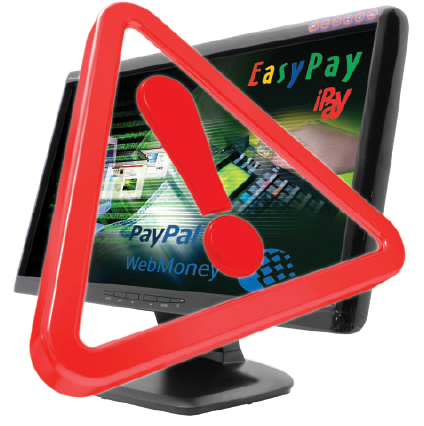By Marina Zubovskaya
People may think that their online, electronic purse transactions are confidential, and the perfect place to conduct business, while avoiding taxation. However, since January 1st, tax legislation requires banks to disclose how much money is being held in online accounts of this nature. In just 8 months, according to the Press-Secretary of the Ministry for Taxes and Duties, Sergey Shkut, 6,000 instances of failure to pay taxes have been discovered, bringing an extra Br11.7bn into the budget.
“It’s a mistake to think that income via the Web doesn’t need to be declared; it is not beyond the reach of taxation,” underlines the Ministry for Taxes and Duties.

Electronic purses liable to taxation
By law, to prosecute online entrepreneurs who fail to declare income, proof is needed that violations have been systematic. Of course, this isn’t too hard to discover, since electronic transactions leave their own trail.
One resident of Vitebsk used social networks to trade in women’s clothing from Russia and China for over a year, receiving payments online. Not only was she liable to a huge fine, but lost her illegal Br100m income. A 29-year-old resident of the Minsk Region successfully sold alcohol through announcements on Internet-forums, taking prepayment through his e-purse, and the balance on delivery — in cash. The scheme worked for just one week as tax inspectors posed as buyers placing a big order; they confiscated all his goods plus Br3m.
Any means received into an electronic purse are considered to be earnings — irrespective of whether they are cashed or not. The account holder bares responsibility and will be liable to a fine of 100 basic amounts (with confiscation of goods, as well as all proceeds). Even if your neighbour decides to repay a debt virtually, tax is due. Only close relatives can transfer means from one electronic purse to another without liability.












